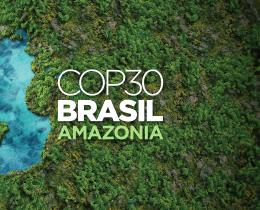A Tale of Two Oil Spills
The Deepwater Horizon oil spill from the Macondo well in the Gulf of Mexico started on April 22, 2010. By the time oil stopped flowing, nearly five months later, an area the size of Oklahoma was damaged by the oil and chemicals used to disperse it.
It remains the largest accidental oil spill in world history to date. Only Saddam Hussein deliberately opening the valves of oil refineries and setting the spill ablaze during the first Gulf War in 1991 is larger. That spill covered some 4,000 square miles with a flaming oil slick, five inches deep in some places, with the goal of slowing the advance of U.S. forces into Iraq. More than 20 years later, clean up continues.
At the time, the U.S. government accused Hussein of “environmental terrorism.” The use of the word "terrorism" by the United States may have been propaganda intended to stir up opposition to Hussein, but the essence of the statement was not inaccurate and was noted by many.
In 2006 Hussein was tried and executed for war crimes, but this particular crime was not among the charges, though it could have been. Under the Rome Statute—which establishes four core major international crimes (genocide, crimes against humanity, war crimes, and the crime of aggression)—it is a war crime to cause “widespread, long-term, and severe damage to the natural environment.”
Two years after the Macondo well was capped, BP and Anadarko Petroleum, the well’s co-owners, were ordered to pay what could amount to nearly $18 billion in fines for their role in the disaster. The case is still in court, with appeals from both sides bouncing back and forth. In a March 2015 appeal, the U.S. government challenged a previous judge's ruling that reduced the estimated number of gallons spilled. Should the appeal fail, BP's potential fines would be reduced by nearly $4 billion.
While BP and Anadarko (as well as contractor Halliburton and oil rig owner Transocean) have been ordered to pay fines related to environmental damage, and even though the well owners were found to have acted with "gross negligence," legally speaking that negligence has little to do with doing widespread, long-term, and severe damage to the environment and the inherent rights of nature.
While causing environmental damage during a time of war is an international crime, currently it is not a crime to damage the environment in the course of doing business. This is because in most countries the natural world has no legal standing. Forests, grasslands, wetlands, oceans, and mountains, as well as their inhabitants and the materials they are made of, are only valued as ‘resources’ for human use, not as ecosystems or beings that have an inherent right to exist.
Spurred by a number of examples of inequities like this, a few groups are advocating for nature itself to have legal rights.
Acknowledging the Legal Rights of Nature
The Global Alliance for the Rights of Nature says that granting legal standing to the natural world is about recognizing and honoring the idea that “trees, oceans, animals, mountains have rights just as human beings have rights. Rather than treating nature as property under the law, rights of nature acknowledges that nature, in all its life forms, has the right to exist, persist, maintain, and regenerate its vital cycles."
This added emphasis (theirs) is important. It establishes a baseline for considering environmental impacts: Does a certain action or set of actions impinge upon the ability of other life forms to exist, to persist and maintain in their way of being, or to regenerate? There is no one answer that fits all circumstances—life is dynamic. These questions are a good place to start.
Protecting the Environment's Interests
The Women’s Earth & Climate Action Network (WECAN), founded by Osprey Orielle Lake (a speaker at the Omega Center for Sustainable Living's 2014 conference Where We Go From Here), advocates for legal systems built on giving nature rights.
WECAN offers trainings for others wishing to incorporate this framework into their messaging. In these trainings, WECAN says, “participants learn about the history of the rights of nature. [How] rights of nature laws create a right to legal standing such that people, communities, nonprofit environmental organizations, civil society and others would have standing to protect the environment.” Such standing would “enable communities affected by climate change and environmental degradation to gain recognition for the harms done not just to human interests around the globe, but also to environmental ones.”
In their trainings, WECAN reports that nature has been granted legal rights in Ecuador, where it was written into the constitution in 2008. In 2009, following the failure of the UN climate talks in Copenhagen, Bolivia put forth its own version of rights for nature. More recently, Santa Monica, California, enacted local legislation recognizing the rights of nature.
Ending Ecocide
Another group is working to change the law at the deepest levels to make ecocide an international crime against peace by adding it to the crimes already recognized under the Rome Statute.
Polly Higgins, who heads Eradicating Ecocide, explains ecocide as “the extensive damage to, destruction of, or loss of ecosystem(s) of a given territory, whether by human agency or by other causes, to such an extent that peaceful enjoyment by the inhabitants of that territory has been or will be severely diminished.”
Ecocide is already a crime in a handful of nations, including Vietnam (1990), Russia (1996), Kazakhstan (1997), Kyrgyzstan (1997), Tajikistan (1998), Belarus (1999), Georgia (1999), Ukraine (2001), Moldova (2002), and Armenia (2003).
The nations of the former Soviet Union all similarly define ecocide as the mass destruction of the fauna and flora, pollution of the atmosphere and water resources, as well as other acts which have caused or are capable of causing an ecological catastrophe. Vietnam words it succinctly, specifying that destroying the natural environment, whether done in time of war or peace, is a crime against humanity.
Ecocide was originally considered for inclusion in the original Rome Statue but was shelved in the mid-1990s. Reintroducing ecocide as an amendment requires only 80 of the 121 nations that have already ratified the Statute to agree to its inclusion.
Should such an amendment pass, in the words of Eradicating Ecocide, it would create “a global duty of care” at the international level, binding governments and corporations alike.
Higgins writes, “Caring for life comes from the nurturing of a relationship, not the placing of a price tag. The right to life is priceless. It is the very sacredness of life itself that is at stake here.”



